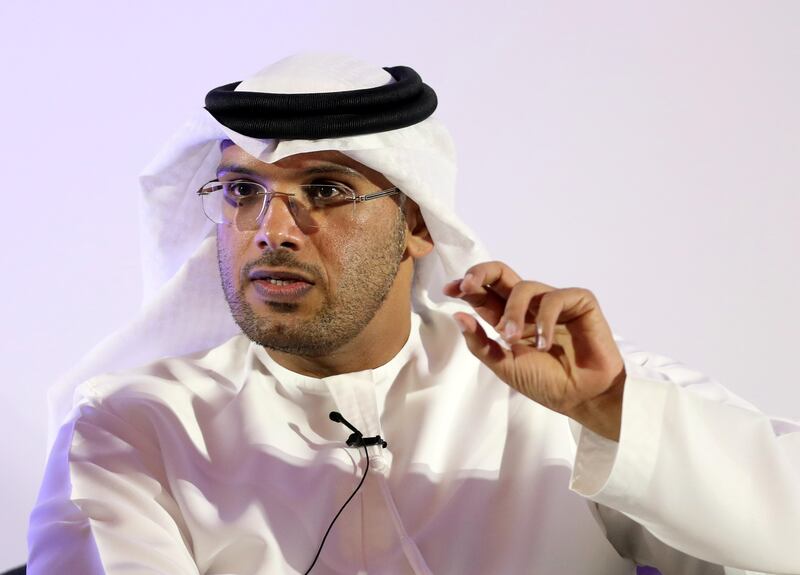Abu Dhabi National Oil Company (Adnoc) will build a new refinery and cracker as part of plans to increase its refining capacity and to nearly triple its petrochemicals production in five years, a senior executive said on Monday.
Abdulla Al Messabi, manager of Adnoc's refining and petrochemical business unit, said that Adnoc would increase its downstream investments by adding a new world-scale refinery and mixed-feed cracker. He gave no details on when the facilities are expected to become operational or funding requirements.
"In the coming months, we will further open our downstream business to create new investment and partnership opportunities across our portfolio of refinery and petrochemicals assets," said Mr Al Messabi at the Abu Dhabi International Downstream conference on Monday. "These new ventures will bring in partners to improve integration, realize synergies and expand both our technological capability and output to meet the rising global demand for petrochemical products."
Such new ventures are in line with Adnoc's strategy to develop new, high-value petrochemical products to meet the growing demand worldwide, and to increase refining capacity to create new revenue streams. The company plans to nearly triple production of petrochemicals and higher-value products to 11.4 million tonnes per annum (tpa) by 2025 from the current output of 4.5 million tpa.
________________
Read more:
[ VAT may dampen petrochemical sales, analysts say ]
[ Dow to increase Sadara share to 50% ]
________________
The investment in refining and petrochemicals capacity is linked to Adnoc’s 2030 strategy to maximise value across the board, including doubling gasoline production in five years to 10.2 million tpa. “We’re after smart growth, and it must be built on a solid foundation,” Mr Al Messabi said.
The region’s downstream sector is changing rapidly with a growing population driving demand in Asia coupled with low oil prices. “There’s also site integration and a continued flux in the industry in terms of mergers and acquisitions,” said Andrew Spears, vice president of energy consultancy Nexant Chemsystems.
The combination of integration and limited feedstock provides good opportunities for the UAE to develop the industry. “This is a global business and the demand is growing with GDP, [but] there needs to be investment,” he said.
Petrochemical facilities are capital intensive, with "world-scale" crackers producing a full-range of derivative products costing around US$5 billion, Mr Spears said. "You're needing a few of these every year, so the industry invests tens of billions of dollars every year."
However, the three-year lull in oil prices have seen a slowdown causing challenges for producers in the Arabian Gulf region while more money is being pumped into the US chemicals industry.
Mr Spears said that private sector companies in the Arabian Gulf were having a hard time, leading to restructuring. "[Consolidation] has been more of an American and European-type of phenomenon, but we're starting to get more activity in this part of the world," he said. "Companies in Saudi Arabia are selling assets and I imagine it to be a trend that will continue to grow in this region."






